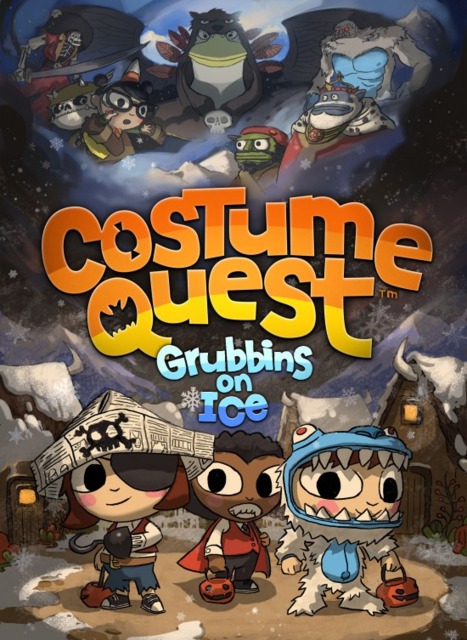Earlier this week I discussed how Double Fine is taking a play out of Da Vinci’s playbook by utilizing a commission model of game development and financing. However, I did not mention how Double Fine came to be in the unique position they are in now. You see, Double Fine is far from the only company that has tried new and interesting economic models to finance their games, so it is worth looking at why they are so successful at adapting new financial models and creating new games. In this post I’m going to walk through the steps they took to get to the position they are in now and hopefully show how other studios can follow suit.

DF’s first step to success was the same as any good game studio’s: establish a fan base. Since they carried Tim Schafer’s legacy of great adventure games from his past at LucasArts, DF started with a leg up in the fan department. It certainly helped that they released Psychonauts as their first new IP; the game was released with much critical fanfare and adulation, and a bit of a meh from the game buying public. However, as would be the pattern for DF games, Psychonauts found a moderately large and fiercely loyal fanbase who loved the game’s sense of humor and unique subject matter. DF followed Psychonauts up with Brutal Legend, an RTS/ Action mashup that received mixed reviews, but followed in Psychonauts’ footsteps by gaining a cult following.
From this point on, DF took that fanbase they had established and began franticly testing different revenue models and team leaders. In what would be a short second-age of DF they tried small downloadable titles dreamt up by some non-Tim members of the team. This spurt of development produced Stacking, Costume Quest, Once upon a Monster, Double Fine Happy Action Theater, and TrenchedIron Brigade. During this phase DF established two important trends: first, they were happy making several small titles rather than one huge title and they were willing to allow different creative voices to lead teams. Second, they were willing to experiment with different mixtures of DLC, publisher involvement and price points when making their games. This mixture of tone, subject matter, team flexibility, and price flexibility prepped DF to rapidly iterate both in the games they were making and the economic models they were employing.

Up until this point in DF’s journey they had operated as both a triple A game development studio and a downloadable game development studio; however, they had not done anything especially crazy. That was until the Double Fine Adventure Kickstarter. This Kickstarter campaign basically put Kickstarter on the gaming map and sent DF on the path of exploring alternative revenue streams to the traditional product model that most games employ. They were one of the first large game studios to embrace the Humble Indie Bundle and essentially allow users to pay what they wanted for access to Psychonauts. They embraced free to play games with Middle Manager of Justice. They took money from an angel investor to bring Psychonauts to Mac. They used Kickstarter again to get funding for Massive Chalice. They released The Cave as both a console dowloadable game and as a phone game. They sold some of their Amnesia Fortnight (an internal DF game jam) prototypes as a sort of mini game sampler. DF followed their pattern of never repeating IP while matching new financial models to the games they were making, rather than the other way around.
All of this experimentation and growth has led us to the present, where DF is helping to usher in another new financial model: the commission model. In their Amnesia Fortnight Humble Bundle DF is allowing users to vote on which prototypes they make before they make them. They are breaking down the barriers between developer and audience in a way that few studios are and that is legitimately exciting. Even more exciting is the fact that none of this is proprietary to DF. DF games do not have the fanbase of say a Call of Duty, but DF the studio has built up such a strong brand recognition and relationship with their fans that they are able to allow that relatively small audience keep them afloat. Any number of established developers can follow the breadcrumbs that DF has left behind. The only things that I believe are essential are financial model flexibility and intelligently scoped games; I don’t think you can go from blockbuster to blockbuster using the model’s DF has employed, at least not yet.
In short, DF has come quite some way in its journey to being one of the premier little-big developers out there, and they have left behind a defined roadmap for other developers to follow if they so choose. I am really excited to see how their venture into commissioned games goes and I think it will be a boon for the industry. I’ll close with a question: if DF offered a subscription service, like Giantbomb Gold, which offered access to every DF game made that year and some subscriber bonus swag would you consider signing up for it? Alternatively, would you continue paying upfront for DF games before a game is developed if they always offered a pre-development purchasing option?
Log in to comment